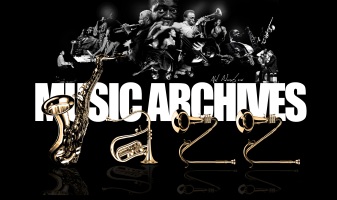
 |
Paolo Fresu — Lessons Learned from Miles |
Post Reply 
|
| Author | |
snobb 
Forum Admin Group 

Site Admin Joined: 22 Dec 2010 Location: Vilnius Status: Offline Points: 30682 |
 Post Options Post Options
 Thanks(0) Thanks(0)
 Quote Quote  Reply Reply
 Topic: Paolo Fresu — Lessons Learned from Miles Topic: Paolo Fresu — Lessons Learned from MilesPosted: 8 hours 42 minutes ago at 5:18am |
Jazz Album Reviews: Sardinian Trumpeter Paolo Fresu — Lessons Learned from MilesMay 27, 2025 On two recent releases, trumpeter Paolo Fresu shows us exactly what he has learned from Miles Davis, and how that has expanded rather than limited his music. Mare Nostrum IV – Paolo Fresu (ACT) kind of MILES – Paolo Fresu (Tǔk)
When you study the music and career of Miles Davis, what exactly is the lesson you’re supposed to learn? There are many, some of them contradictory: Focus on the delicacy of the muted sound, or smother it in electronics. Absorb the traditions of the past masters, but keep up with the current trends. Hone your distinctive style and follow your own Muse, but be aware of what your audience likes to hear (and make some serious money). Always ask yourself, “What would Miles do?”, and the answer is always “Be yourself.” The history of modern jazz is populated with trumpet players addressing, with varying degrees of success, the anxiety of influence from Miles Davis. One of the most prolific, interesting, and technically skilled ones is the Sardinian trumpeter Paolo Fresu, now one of the most important jazz musicians in Italy. On two recent releases, he shows us exactly which lessons he has learned, and how they have expanded rather than limited his music. The first is Mare Nostrum IV, the latest in a 20-year series of Mare Nostrum albums with a trio including French accordionist Richard Galliano and Swedish pianist Jan Lundgren. Who needs a bass player? It turns out that the trumpet and accordion sound simply magical together (with help from just the right amount of reverb), putting a new twist on the timeless big band alchemy of brass plus reeds. The trio plays with a deeply European sound that is infused with the feel of American jazz from the ’50s. All, except for “La Vie en Rose,” are originals. A touchstone is the Davis soundtrack to Ascenseur pour l’échafaud, freely improvised over a screening of the French film in 1957. This is headphone music for walking along the Seine in Paris at 3 a.m. with a broken heart. You almost need to brace yourself before listening to “Alone for You,” a particularly beautiful ballad by Lundgren on an album full of beautiful ballads, deserving of becoming a standard. (Tip to the singers out there: Be the first to put lyrics to this one.) Fresu has a remarkably warm and enveloping sound on both trumpet and flugelhorn. There are no ostentatious high notes and killer-bop flurries. On the other hand, this is no ECM record — introspection serves the melody and solos, carefully stitched into the rhythm and the chord changes. No unfocused noodling allowed. He’s drawing on the early Miles tradition here, but also the traditions of Art Farmer and Chet Baker (to whom Fresu has also paid tribute on Tempo Di Chet and Shades of Chet). Listen to “Hope” — a simple melody stated in quarter notes. It takes enormous trust in the power of lyricism for the trio to make something so simple sound so meaningful. A single blue note from Fresu multiplies its impact. “Colette” is a slow waltz by Galliano that displays Lundgren’s skills on piano. He doesn’t use the more languorous and cushioned touch of Bill Evans — there is more bounce in his ballads, a lighter feel that brings to mind classical ballet music. The minuet “Daniel’s Farfars Låt” is also informed by classical music with a Baroque melody and harmonized counterpoint. A final sound from the piano sprays a bit of graffiti on the pastoral scene, however, reminding us this is jazz. “Eloquence” is another waltz, a feature for the accordionist, which could not possibly sound more French. Other lyrical glasses of musical Bordeaux include “Man in the Fog,” a haunting melody with the accordion and piano (beautifully tuned) playing effective high notes in unison; “Life,” again with accordion and piano in unison but in the lower register; and “Float,” a more conventionally jazzy ballad with Fresu’s most ornate and complex solo. This is romantic candlelight French or Italian restaurant music of the highest order. If you can’t understand a word of the language your date is speaking, the music rewards close listening.
kind of MILES is an entirely different take on the lessons of Davis. This is a studio-recorded companion album to a multi-media theatrical concert Fresu toured with in 2024. It wove together images, narration, and sounds from the life of Davis and Fresu himself, accompanied by two live bands on each side of the stage: one acoustic, and one electric. Fresu stayed in the middle, moving between the two. The album takes an impressionistic view of Davis’ music. Just as an abstract painting may contain recognizable images that float in and out, kind of MILES is mostly original compositions from band members creating impressions of Davis’ style with occasional standards from Davis’ repertoire. Fresu remains himself throughout, contributing new music rather than reproducing, and by doing so he best honors Davis’ influence. It’s best not to get too hung up on how closely Fresu plays in Davis’ style. It’s much better to enjoy the music for its own sake in the same way that you would enjoy Davis’. If he wanted to, Fresu could absolutely pass for ’50s Davis in a blindfold test. (Try it by presenting a dedicated Miles fan with Fresu’s “I Thought About You.”) “It Never Entered My Mind,” one of Davis’ most beautiful recordings of the era and perhaps the first where he truly found his distinctive voice on Harmon mute, is rightly recreated almost breath for breath in Fresu’s opening statement. This is unquestionably the right decision, given that it’s impossible to imagine anyone playing it any better than Davis. Fresu’s tone on muted trumpet is darker and more centered, with just slightly more vibrato than Davis would use. But such quibbles are pointless given such hypnotic music. Once Fresu has established his Davis credentials with some standards, the originals begin with “Rue Saint Denis” with Fresu on flugelhorn. His sound is so rich on that instrument that it’s closer to a valve trombone than a trumpet. Even when Fresu returns to the trumpet, the darker brass sound prevails when the melodies are stated with trombone, played memorably on “Back In” and throughout the album in a variety of contexts by Filippo Vignato. Some of the standards get fresh new arrangements. “Summertime” is taken up-tempo, with no touchstones from the famous Gil Evans arrangement (and it ends with the famous bassline and melody of “So What”). Similarly, “Bess, You Is My Woman Now” avoids both the form and feeling of the Evans arrangement. “Time After Time,” however, retains the commercial feel of how Davis did it, with the same rhythm arrangement, but it finds its own style with trumpet delay effects and a lyrical guitar solo from Bebo Ferra. More interesting, however, are the radical recastings of Davis’ electric music. They will certainly not be to every Davis fan’s taste. Fresu composed “Call it Nothing,” which is a take on Davis’ incendiary jam “Call it Anything” from the Isle of Wight festival in 1970. Fresu finds what melody there is amid the jabbing fragments and swirls of Davis’ “Call it Anything” solo, slowing them down and smoothing them out. There’s a ’70s period sound from the electric piano and the wah-wah pedals of the guitarists, but it is superimposed on a slicker rhythm arrangement lifted from 1984’s “Decoy.” Fresu follows up with “Call it Something,” a track that nods to Davis’ murky ’70s electric style but otherwise shows little relation that I can hear to “Call it Anything.” It even goes into a swinging jazz shuffle at one point. There are other puzzles. I was hoping that someone was finally going to mine the rich vein of material on Davis’ Aura (1989), but the songs here have no connection to the “Violet” and “Orange” that appear there. Why give them the same names? Still, “Violet” is a great listen. Ferra’s guitar solo tips the hat to John Scofield, and Fresu has Davis’ ’80s sound down cold with the jolting flurries of notes and the small Milesian vibrato in just the right places. It’s far from Fresu’s natural style, which we hear much more clearly on Mare Nostrum IV, but that makes what he is doing all the more impressive. He has listened to Davis so deeply that he can evoke the essence of his music across the eras. Perhaps the message is in the title of the album: kind of MILES. This is Davis-adjacent music, kind of like Miles Davis, but still very much a Paolo Fresu album. You can enjoy it as a reverie of what could have been if Davis had lived a bit longer or taken some other, and more mainstream, directions (“Venere” even has a bit of country twang). I’ll leave it with Fresu’s brilliant arrangement of “Selim,” a spooky track from Davis’ Live/Evil (1971). Fresu reimagines it as an acoustic jazz ballad, one that wouldn’t be out of place on an album like Davis’ ‘Round About Midnight. Fresu clarifies the melody, gives it conventional jazz chord changes, and plays it as a slow swing ballad. In doing so, he pulls out the traditionalist soul that was still with Davis even during his wildly experimental electric period in the early ’70s. Similar approaches to “Selim” have been done before, by David Liebman (On the Corner Live!), Jerry Jerry Léonide (Heritage: A Tribute to Miles Davis), and it was even given a slick R&B treatment with lyrics by Robert Glasper on Everything’s Beautiful. But this version is the most memorable and original of the lot. Two different eras of Miles Davis, seamlessly fused, played with respect and soul by a musician who has done his homework and plays from the heart. from https://artsfuse.org Edited by snobb - 8 hours 42 minutes ago at 5:18am |
|
 |
|
Post Reply 
|
|
|
Tweet
|
| Forum Jump | Forum Permissions  You cannot post new topics in this forum You cannot reply to topics in this forum You cannot delete your posts in this forum You cannot edit your posts in this forum You cannot create polls in this forum You cannot vote in polls in this forum |